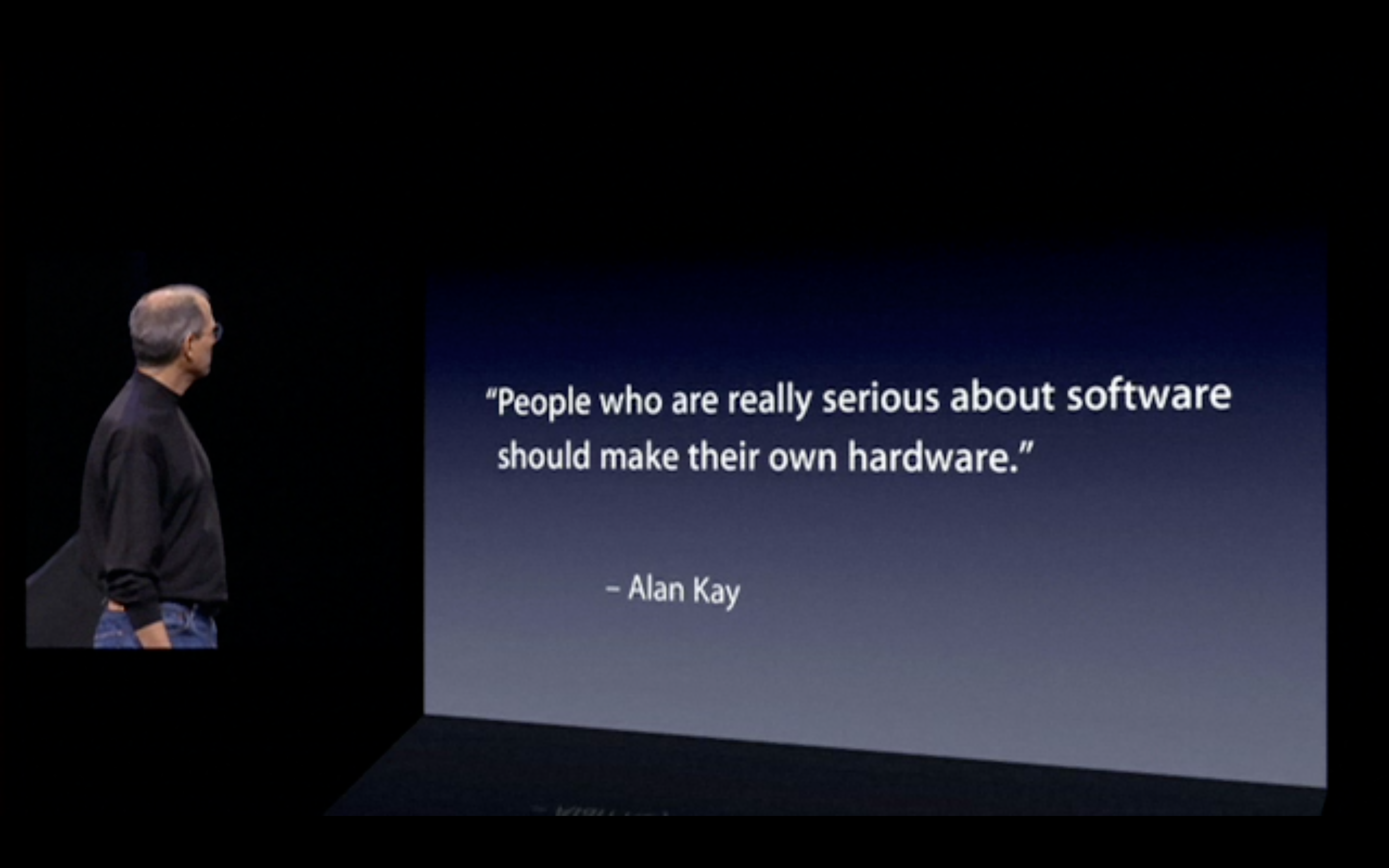A very simple thing, but one that still causes a lot of confusion in the comments on some types of articles, when the author mentions that Samsung who manufactures Apple's processors (the ones that equip Apple TVs and iGadgets). However, Ma's logo is printed on the chip. In today's article, we will understand why and how it can influence the choice of processors that will equip future Macs.
To understand the part of Apple's philosophy that relates hardware and software, we need to go back to 2007, when we presented the first iPhone, and look at one of the places that possibly came up with such thoughts.

Thirty years earlier, Alan Kay, a popular American computer scientist, said:
People who take software seriously should build their own hardware.
The point: Apple wants, like most companies, to please its customers as much as possible, always looking for the best solutions and user experiences. For that, it is not enough to just create the best software, you have to make them work on good hardware. And in this regard, Apple does its duty very well: architect as much as possible, even if she is not the manufacturer. In the case of processors, the hardware and technology team designs and delivers Samsung, which makes everything and returns Apple. As in a building, the name of the architect / engineer that remains engraved and not the names of the masons who build it.
Returning to the projects themselves, it is worth remembering that rumors about the adoption of own chips by Apple started in 2008 (the second year of the iPhone's life), but only in 2010 did this materialize, with the launch of the original iPad.
The architecture chosen to equip iGadgets was ARM (Advanced RISC Machine) but, according to rumors, Apple may also adopt this architecture for its computers, designing its own chips for Macs and further enforcing its philosophy.
If this becomes a reality, Robert Mansfield (senior vice president of technology) will be heading the project, which gives us minimal security about its quality. Bob has been with the company for more than a decade and, when he thought about retiring, he received a fat offer from Tim Cook (Apple CEO) to stay where he is. We know well what Mansfield is capable of, since he actively participated in the creation of products that are strongly present in our lives and Cook is also fully aware of this.
This transition is unlikely to happen for now, since it is too complex and must necessarily involve a series of tests that cannot be performed overnight. It is worth mentioning that, the last time the Cupertino firm decided to make a transition like this (changing the PowerPC architecture to x86), its shares plummeted and, soon after, they took off, not to mention that our life actually improved with the arrival of Intel (more powerful / efficient chips, possibility to run Windows on Macs, etc.).
As I said, it shouldn't happen so soon. Despite having its advantages as a greater integration with iGadgets and iOS, who knows even a single system, as many bet, greater energy efficiency (opening doors for longer and longer lasting batteries), less space (allowing for thinner and lighter machines), a change to the ARM architecture also has its benefits. disadvantages, such as incompatibility with Windows, the need for a dynamic binary translator (such as Rosetta) so that current applications do not stop working, among other things.
Putting it all on the balance, I particularly think that Apple will adopt this stance in the future, also controlling the manufacturing of Mac processors. And you?
